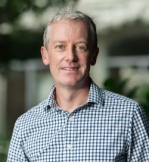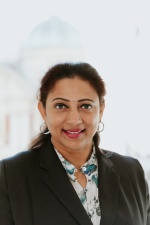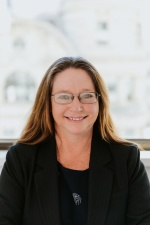Search
Showing 10 of 1193 results for Value-priced treatments https://simplemedrx.top
-
International student enrolments continue upward surge
“Enrolments are steadily rising to pre-pandemic levels, with 2024 enrolments (83,425) now at 72 percent of 2019 totals (115,705).
“New Zealand reaps a broad range of economic, social and cultural benefits from having international students in our midst. International education boosts our economy, creates business opportunities, fuels innovation, and delivers essential cross-cultural skills for a more connected world.
“This sustained growth highlights the international education sector’s progress towards achieving the Government’s Going for Growth Plan goal of doubling the export revenue from international education by 2034.
“Universities and government-funded private training establishments (PTEs) are close to matching 2019 enrolment numbers. We are seeing enrolments grow across universities, schools, Te Pūkenga/NZIST, government-funded PTEs, and English language schools subsectors. In 2024, the strongest year-on-year growth was seen at government-funded PTEs (+59%) along with primary (+53%) and intermediate (+32%) schools.
“Universities saw 33,485 total enrolments, schools had 18,350 enrolments, while Te Pūkenga/NZIST and government-funded PTEs each had 10,270 and 10,185 enrolments, respectively.
“More international students are now enrolled for master’s study programmes in New Zealand. Between 2023 and 2024, there has been a 68% increase in master’s enrolments, with 14,695 international students in 2024, up from 8,740 in 2023. This is an 85% increase compared to 2019 when we had 7,945 enrolments for master’s study.
“The overall rise in enrolments at the national level is underscored by a diversity of regions leading strong growth from 2023, including Waikato (+50%), Hawke’s Bay (+44%), West Coast (+185%) and Gisborne (+156%). The Waikato region is notable in that it has seen significant growth across multiple subsectors: universities, Te Pūkenga/NZIST, government-funded PTEs and schools.
“China and India remain the top two source markets for international student enrolments with 34% and 14% enrolments respectively, followed by Japan (9%), South Korea (4%), Thailand (3%), United States of America (3%), Germany (3%), the Philippines (3%) and Sri Lanka (3%),” Malu says.
More information on enrolment numbers can be found here.
Note: All numbers are current as at 1 April 2025. Full numbers have been rounded to the nearest five. One individual may enrol more than once.
Government-funded PTEs are PTEs that receive government student funding for learners who are defined as domestic students under the Education and Training Act 2020 (note that PhD and exchange students are defined as domestic students under the Act).
For further information:
Sai Raje | Senior Communications Advisor, Education New Zealand
+64 21 479 649
About Education New Zealand Manapou ki te Ao (ENZ)
Education New Zealand Manapou ki te Ao (ENZ) is the government agency dedicated to helping New Zealand realise the social, cultural, and economic benefits of international education. Our role is to promote New Zealand as a high-quality education destination offering excellent education and student experiences.
With approximately 82 staff in 14 locations around the world, ENZ works closely with New Zealand’s diverse education sector which includes schools, English language providers, Wānanga, private training establishments, New Zealand Institute of Technology/Te Pūkenga, and universities. Internationally, we work with a range of education stakeholders, including government agencies and education providers to identify and encourage sustainable growth opportunities for New Zealand’s education sector.
- Home
-
Response to student visa fraud allegations
Immigration New Zealand (INZ) have become more aware of risk and fraud in some markets including India and measures are in place to identify and manage the fraud. The high visa decline rates are evidence of a significant effort by INZ to manage students who submit false and misleading information.
India is the second largest source of international students to New Zealand. India is and will continue to form a large part of the international education industry. The vast majority of students who study in New Zealand make a very valuable contribution to our campuses, our workplaces and our society.
Every day Indian students, alongside other international students, are helping New Zealand to build its research capability and global linkages, to fill skill shortages and enrich our culture. The actions of a small minority must not damage the reputation of a whole nation and undermine the significant contribution the vast majority of international students make to New Zealand society.
If there are cases of the rules being flouted, we urge people to report those cases so they can be investigated and addressed fully.
ENZ works closely with our fellow agencies including INZ, New Zealand Qualifications Authority and the Ministry of Education top ensure that New Zealand continues to have a high quality education system which delivers for New Zealand and international students.
-
Our Board
Tony Gray | Board Chair
 Tony Gray has had a career in education spanning over 37 years across New Zealand and the United Kingdom. Tony is a former Chief Executive of NMIT and Ara Institute of Technology.
Tony Gray has had a career in education spanning over 37 years across New Zealand and the United Kingdom. Tony is a former Chief Executive of NMIT and Ara Institute of Technology. He is currently the Chief Executive of Nelson Tasman Hospice Trust. His governance portfolio includes Chair of the Tertiary Accord of New Zealand, where he worked towards establishing a shared online learning platform across member institutes. In 2023, Tony was appointed as a Member of the New Zealand Order of Merit for his services to education.
Daniel Wilson | Board Member
 Daniel Wilson started his career in Auckland as a music teacher. After positions at several schools in Auckland and London, Daniel was appointed to the Leadership team at Manurewa High School in 2007, firstly as Deputy, then Associate Principal.
Daniel Wilson started his career in Auckland as a music teacher. After positions at several schools in Auckland and London, Daniel was appointed to the Leadership team at Manurewa High School in 2007, firstly as Deputy, then Associate Principal.In 2015, Daniel moved to Nelson to take up the position of Principal at Nayland College. Daniel has extensive knowledge of international education from a secondary perspective, with Nayland College hosting approximately 80 international students from around the globe in 2020. Daniel also has a very good understanding of a range of markets and marketing approaches, having overseen a 40% increase in international numbers since joining Nayland College.
As well as leading Nayland College, Daniel is also the Lead Principal and Governance Chairperson for the Top of the South Trades Academy. He has also acted as a Regional Engagement Lead for the recent National Certificate of Educational Achievement (NCEA) review. Over the years Daniel has, and continues to work with various national and regional advisory groups. In his spare time Daniel is an accomplished brass musician, playing trombone in a variety of musical groups around Nelson and serving as President of Nelson City Brass.
Dr Therese Arseneau | Board Member
 Dr Therese Arseneau has wide ranging governance experience including as Chair of the Board of ChristchurchNZ, Ara Institute of Canterbury, Regenerate Christchurch and the Christchurch Symphony Orchestra; and as a Director of J Ballantyne Company Ltd, The Open Polytechnic of New Zealand Ltd, Enterprise North Canterbury and the Social Sciences Research Council of Canada.
Dr Therese Arseneau has wide ranging governance experience including as Chair of the Board of ChristchurchNZ, Ara Institute of Canterbury, Regenerate Christchurch and the Christchurch Symphony Orchestra; and as a Director of J Ballantyne Company Ltd, The Open Polytechnic of New Zealand Ltd, Enterprise North Canterbury and the Social Sciences Research Council of Canada.Therese has over 30 years’ experience in the tertiary education sector, including as a university lecturer in Canada and New Zealand. A specialist in elections and New Zealand politics, she is currently an Adjunct Senior Fellow in Political Science at the University of Canterbury and in 2011 she received a UC Teaching Award for excellence in teaching. Therese holds a DPhil and MPhil from the University of Oxford, which she attended as an international student and Commonwealth Scholar.
Dr Erik Lithander | Board Member
 Dr Erik Lithander has had a career in higher education spanning over 20 years across New Zealand, the United Kingdom, Ireland and Australia. He is a former Pro Vice-Chancellor and Vice-President (International and Outreach) at the Australian National University in Canberra and Director of International Affairs at University College Dublin.
Dr Erik Lithander has had a career in higher education spanning over 20 years across New Zealand, the United Kingdom, Ireland and Australia. He is a former Pro Vice-Chancellor and Vice-President (International and Outreach) at the Australian National University in Canberra and Director of International Affairs at University College Dublin.Dr Lithander is currently the Deputy Vice-Chancellor Strategic Engagement at the University of Auckland. Prior to commencing this role in 2021, he was the Pro Vice-Chancellor and Vice-President (Global Engagement) at the University of Bristol in the United Kingdom. Dr Lithander has an internationally focused governance portfolio, with oversight of the Auckland Confucius Institute and previously the North Asia CAPE (Centre for Asia Pacific Excellence). He also is Chair of the Advisory Boards for the New Zealand Centre at Peking University and the New Zealand Centre at the Indian Institute of Technology (Delhi).
Prabha Ravi | Board Member
 Prabha Ravi QSM, JP is an experienced governance leader and international education specialist with over 25 years in senior management roles, including International Director at Waiariki Institute of Technology and YMCA Central, and Senior Manager at Education New Zealand Manapou ki te Ao. She has represented New Zealand in more than 47 countries, generating millions in export education earnings and building strong global partnerships.
Prabha Ravi QSM, JP is an experienced governance leader and international education specialist with over 25 years in senior management roles, including International Director at Waiariki Institute of Technology and YMCA Central, and Senior Manager at Education New Zealand Manapou ki te Ao. She has represented New Zealand in more than 47 countries, generating millions in export education earnings and building strong global partnerships.With nearly 20 years of governance experience across the arts, sports, education, health, community, and public sectors, Prabha serves on several boards, including the Wellington/Wairarapa Lotteries Committee.
She is also the founder and director of Natraj School of Dance, a leading Indian classical dance institution in Wellington for over 25 years, and an award-winning actor. Her contributions to education, arts, governance, and ethnic communities have been recognised with multiple honours, including the Queen’s Service Medal in 2017.
Sara Brownlie | Board Member
 Sara Brownlie is a chartered accountant and chartered director with strong risk and financial management and financial planning knowledge. She has worked in the public sector for most of her career in senior financial roles including Department of Internal Affairs, Ministry of Justice and at Treasury where she was also Chief Financial Officer for the Department of Prime Minister and Cabinet and for the Public Services Commission. This followed early career at Deloitte and Unilever.
Sara Brownlie is a chartered accountant and chartered director with strong risk and financial management and financial planning knowledge. She has worked in the public sector for most of her career in senior financial roles including Department of Internal Affairs, Ministry of Justice and at Treasury where she was also Chief Financial Officer for the Department of Prime Minister and Cabinet and for the Public Services Commission. This followed early career at Deloitte and Unilever. Sara now provides specialist strategic financial and project/programme advisory services through her company Fargher Woods Ltd. Sara is a board member with Catalyst.net and is the Crown appointed Deputy Chair and Chair of the Finance and Audit Committee of the Research Education Advanced Network New Zealand (REANNZ). She is also an independent member of Enable New Zealand Finance, Risk and Audit Committee, and holds a similar role with the Upper Hutt City Council's Risk and Assurance Committee.
-
Meet the Brazil expert
Ana took the opportunity to clarify the recently-introduced – and then removed – tax on international education fee transfers and gain insights from Maura on New Zealand’s competitive advantage in the Brazil market.
Ana: What is the Brazilian Educational and Language Travel Association (BELTA) is and what does it do?
Maura: BELTA is a non-profit organisation that works across Brazil. Launched in 1992, it was the first association working in the field of international education in Latin America. Today, BELTA agencies represent 75 percent of Brazil’s international education market. These agencies are committed to promoting, facilitating and delivering education and exchange services (educational and cultural programs of all kinds and for all ages, courses, internship and volunteer work programs), in Brazil and overseas. BELTA is often asked to share its experiences with other countries to help them organize their own associations.
Besides promoting Study and Exchange Travel, BELTA monitors the standard of services offered by its associated companies, evaluating their performance from both a student and international partner organisation perspective. Only agency partners of the highest integrity and who agree to abide by the Association’s Social Statute and rigid Code of Ethics are allowed to join BELTA.
Along with the Board of Directors, I am responsible for ensuring BELTA functions correctly, and for representing the Brazilian market to international government and education entities. BELTA is a member of the Federation of Agencies Associations, and I am its president for the next four years.
The income tax on international transfers relating to educational purposes (such as student exchange programmes) has recently been in the news. The Brazilian government has now announced that it will not charge those transfers. Would you clarify and comment on that?
At the start of January the Brazilian government decided to end the tax exemption for payments due abroad. The proposed rate for the new tax was between 6.38 percent and 33 percent. Fortunately, on 26 January 2016, the Department of Federal Revenue published that study abroad programs would be exempt from the new tax.
Brazilian students are now able to plan their international exchange programs with the knowledge that they will not have to pay this tax. This good news for our New Zealand partners!
We know the weakening of the Brazilian Real in relation to the American dollar and the Euro has had an impact on the demand for education abroad to those destinations. Do you believe that New Zealand may be a more desirable study destination in the current economic scenario?
New Zealand has a big market in Brazil because of the favourable exchange rate and the high quality of the education. The opportunity to work while studying is also very appealing for Brazilian students. All of these conditions combined places New Zealand in a special position as a destination for the Brazilian student.
Brazilian students are looking for qualifications that will help them succeed in the challenging job market. They are looking for postgraduate and specialized programs that will position them well in the job market, when the Brazilian economy is back on track. New Zealand is well-placed to fulfil this demand.
What’s your connection to New Zealand? What’s your view of New Zealand as an education destination for Brazilian students and what advice you would give to NZ institutions wanting to attract Brazilian students?
I have visited New Zealand as part of my job, visiting a range of education institutions. I have also had the opportunity to visit the country with my family as a tourist. It offers great education and lifestyle opportunities for students and fantastic tourism experiences.
Students are able to live in a very safe environment, can choose from a great variety of high quality institutions and subject areas, in all kinds of cities or towns. And all within a country with beaches and mountains, fields and farms, with very hospitable and well-educated people.
New Zealand is a top education destination and I love its people! This is my very personal opinion!
Institutions wanting to receive Brazilian students should:
-
offer high quality academic programmes and excellent facilities, including accommodation
-
work with high-quality agencies
-
promote the school regularly throughout the year
-
offer good advice on visa processes
-
be open and understanding to the cultural differences between New Zealand and Brazil.
Find out more about BELTA at http://www.belta.org.br/
-
-
Get ready for unprecedented profile of NZ education in China
We also need to make a leap in scale.
We can’t do that with a business as usual approach.
This realisation is behind the Dragons in a Distant Land documentary now set to screen before 650 million people in China from August 2013.
The documentary highlights the experiences of Chinese considering studying in New Zealand and of successful alumni who have returned to China.
Education New Zealand (ENZ) General Manager of Marketing and Channel Development Kathryn McCarrison says the two-part documentary (renamed from Dragons in the Land of the Long White Cloud) is designed to be a “game changer” for New Zealand’s student attraction marketing in China and will boost referrals to Chinese agents and New Zealand institutions. The documentary seeks to capture parents’ attention; students aged 16-25 will be targeted by a digital campaign.
“We’ll get unprecedented coverage of New Zealand education in China with the documentary.
“We all need to get ready – the Chinese networks will only give three days’ notice of the first on-air date.
“To get full value out of the investments in the documentary, we – that is ENZ and the industry – need to run an integrated campaign leveraging each other’s work.”
ENZ is developing marketing materials to help institutions plan their marketing in China following the screenings of Dragons in a Distant Land on national and regional television.
These materials will be made available to institutions.
ENZ’s production company, the Gibson Group, is negotiating with Chinese networks to have the documentary screened in August. The associated student dragons’ marketing campaign will be ready on 1 August 2013 to support the launch of the documentary.
Key features of the campaign include:
-
Using alumni and agents on Weibo (the Twitter of China) to post about studying in New Zealand and direct people to the campaign’s website
-
Creating posts for targeted internet forums and bulletin board sites
-
Posting content to Youku, the YouTube of China.
To directly engage the target audience – parents, prospective international students and education agents - there will be:
-
Video advertising targeting social networking and video sites and top student portals
-
Performance display advertising.
ENZ’s current Baidu search campaign will be reconfigured to ensure relevant searches are directed to the student dragon’s campaign website.
Kathryn says the traffic from the student dragon’s campaign website will go to the New Zealand Educated website. “Your information on it will likely be the first impression of your institution for many Chinese visitors.
“We recommend you check out your institution’s page on newzealandeducated.com very soon to ensure your content is up to date.”
Closer to the launch date ENZ will make available key messages for each episode, press releases, a media question and answer and photography from the documentary. The final media buying plan, showing when and where ENZ will be advertising in China as part of the campaign, will also be available to help institutions with their own media buying.
A drop-box folder has been set up to access these materials when they become available. Email Deena for details. She will keep you posted on developments through e-news.
-
-
College of Creative Arts “foots it” with the world’s best
The US National Association of Schools of Art and Design has granted the College “substantial equivalency”, the most comprehensive international benchmark of quality in art and design education in the world. The College now officially sits alongside such world-leading schools as Rhode Island School of Design, Cranbrook Academy of Art and CalArts.
“The College of Creative Arts is another great example of a New Zealand education institution footing it with the world’s best,” says Kathryn McCarrison, Education New Zealand’s General Manager Marketing and Channel Development.
“Based on what we know about how international students make their choices over where to study, the college’s substantial equivalency award is a potential game changer for them.
“The key drivers of choice all relate to quality and reputation – does my institution choice advance my career prospects? How does it stack up quality wise? What’s its reputation and how does it rank internationally?
“For this reason institutions need to make the most of any international recognition.”
Kathryn says this type of recognition is also invaluable when it comes to Education New Zealand’s job of promoting New Zealand as a study destination.
The College’s School of Design is already ranked top in Australasia by Red Dot, the global design award organization.
-
Brazilian science scholarship opening
Education New Zealand is now working with New Zealand Institutes of Technology and Polytechnics (NZITP) on an agreement to include ITPs the SWB programme.
The inclusion of New Zealand universities in the national call for applications for the SWB Scholarship follows the signing of an agreement between Universities New Zealand and the National Council for Scientific and Technological Development (CNPq) which was witnessed by Prime Minister John Key and Brazilian President Dilma Rouseff, during Mr Key’s visit to Brazil in March 2013.
The SWB programme aims to send 100,000 Brazilian students on undergraduate “sandwich” courses; PhD “sandwich” courses; full PhD and post doctorates programmes to study science, technology, engineering, mathematics and creative industries at top universities around the world.
The SWB also offers opportunities to foster relationships between institutions under a Special Visiting Researcher scholarship scheme. This scheme aims to attract recognised international researchers in priority areas set by the SWB programme to conduct projects with Brazilian research groups and visit Brazil for up to three months each year over a period of two to three years.
Information and applications for study at New Zealand universities is now available to Brazilian undergraduate and postgraduate students at this link.
-
Understanding Indonesia’s education market
Every year, more and more Indonesian students look to further their studies overseas. There is an awareness of the need for a better quality of education and the current circumstance in Indonesia is that facilities and quality education are somewhat still below expectations, especially when compared to abroad. International schools based in Indonesia also take a part of the increasing number of Indonesian students looking for an international education. After finishing at these high schools with an “overseas” qualification, these students usually opt to pursue their tertiary study abroad.
With the number of Indonesian students choosing to go abroad increasing each year, why has New Zealand not truly benefited? It is simply because of the lack of information about New Zealand and the perception that New Zealand is a very quiet country with more sheep than people. We in Indonesia seldom see advertisements about New Zealand or the institutions while other countries have put lots of effort in branding their country and their institutions consistently. People are all the same. We tend to remember products that have a strong branding. So, if you want people to always remember your product, you need to keep reminding people by persistently branding your product to the market.
At first, I had the same perception of New Zealand being quiet too. Joining the May 2013 trip was my very first time to see New Zealand. I was so excited.
I got a chance to visit representative institutions in Auckland, Hamilton, Wellington, Christchurch and Dunedin. In the South Island, my first destination was Christchurch where I found lots of major work to rebuild and renovate its buildings.
The first day touching down in Auckland, and seeing the city itself, changed my perception. Auckland is not as crowded as in my country, Indonesia, of course. But it is not as quiet as what I thought! The city has everything that a student needs - shops, cafes, restaurants, flats, shopping centres and even the education institutions are all within walking distance.
New Zealand is such a perfect place to study. You have everything in town, people are so nice and friendly, and it’s very safe. I don’t need to worry about pick-pockets or drunken people when walking with my female friends back to hotel at night.
After seeing these cities, and visiting various institutions, I also found that New Zealand has a great education system. Students are taught in a very practical way, both, in high schools and tertiary institutions. And this is what New Zealand needs to show. You need to educate the Indonesian market about this and change the perception of New Zealand.
Indonesian families are unique. They have a strong family relationship. Their children’s study destination is also influenced by their relatives and friends. Parents feel more comfortable about letting their children study in a country where they have relatives or friends staying. Most of the time, the experience and opinions from their relatives play a great part in their decision. Apart from that, Indonesian parents will usually send their children overseas after they graduate from high school. They believe at this stage their children are mature enough and can take a good care of themselves overseas. Therefore, tertiary education is more attractive to the Indonesian market.
Recently, the postgraduate market for Indonesian students has also been growing significantly. For postgraduate students, study duration, value for money and the opportunity for job placement are the key areas they are usually looking at. Little do they know that New Zealand offers a postgraduate job search visa and the opportunity to work and stay in New Zealand after they graduate.
So, by understanding Indonesian market better, I believe institutions can plan a better strategy for their marketing activities. Together we can promote New Zealand as one of the top destinations for Indonesian students to consider as a study destination.
Key points:
-
New Zealand has a low profile in Indonesia
-
To change this we need persistent and consistent marketing in Indonesia
-
The Indonesian market is primarily a tertiary education market, but there are opportunities for other sectors
-
The postgraduate market is growing significantly.
SUN Education describes itself as the “most complete” International Educational Consultancy firm in Indonesia, providing the largest selection of quality education and country destination under one roof with its main focus being Australia, Singapore, UK, USA, Malaysia, New Zealand, Switzerland and Canada. Suwarni has more than eight years of student recruitment activity and currently works with 10 countries including New Zealand.
Suwarni Puspita, Branch Manager, Mal Ciputra, with Indonesia’s SUN Education Group recently took part in a visit to New Zealand with other education agents from Indonesia. She offers some impressions of the opportunities and challenges for New Zealand institution, and in particular tertiary institutions, in Indonesia.
-
-
Introducing new offshore staff
Welcome to Education Manager Shelly Xu, who is based in Shanghai, and Market Development Manager Dinh Duong, who is based in Ho Chi Minh City (HCMC).

Shelly Xu has joined Education New Zealand’s China team as of 2 September and arrives to the role with more than 10 years of experience at Immigration New Zealand’s (INZ) Shanghai Branch, where she built up a concrete understanding not only of visa policy and settings, but also of the New Zealand- China international education landscape.
“We are really thrilled to have Shelly on board and she brings invaluable strengths to this role,” says Regional Director – Greater China Alexandra Grace.
“Shelly’s appointment to this newly created “Education Manager” position will enable better identification and uptake of growth opportunities, as well as better support to industry, in this key region of the China market”.
Shelly’s involvement with industry through her student visa responsibilities led to a desire to work for Education New Zealand. “Through INZ I learnt about the high quality of New Zealand education and found my passion and strong interest in promoting New Zealand education to more international students”, she says.
Get in touch with Shelly when you are visiting Shanghai; or would like to update Shelly on your business or institution’s activities in Shanghai, Zhejiang, Jiangsu, and Anhui (Shelly’s areas of responsibility, working to the Regional Director). Her email address is shelly.xu@enz.govt.nz. Shelly is a part of the New Zealand Consulate-General effort in Shanghai, and will be based with New Zealand Trade and Enterprise (NZTE) at New Zealand Central.

Dinh Duong is the new Market Development Manager in Viet Nam, reporting to Izak Human, Regional Director – South East Asia.
Dinh will be working to promote New Zealand education in Viet Nam through fairs, events, exhibitions, meetings, workshops and other activities. She’ll be supporting New Zealand education providers and business by providing insights into the Viet Nam market, researching and working to establish high quality partnership opportunities for institutions, and keeping on top of developing education trends in Viet Nam.
Dinh joins Education New Zealand with four years’ experience in the education sector, having worked for a big English language provider as well as the British Council in Viet Nam. In addition to speaking English and Vietnamese, Dinh speaks Mandarin, Cantonese, and Chaozhou Chinese dialects.
Get in touch with Dinh when you are visiting HCMC; or would like to update her on your business or institution’s activities in Viet Nam. Her email address is dinh.duong@enz.govt.nz, and she works alongside NZTE staff at the Consulate-General office in HCMC.

